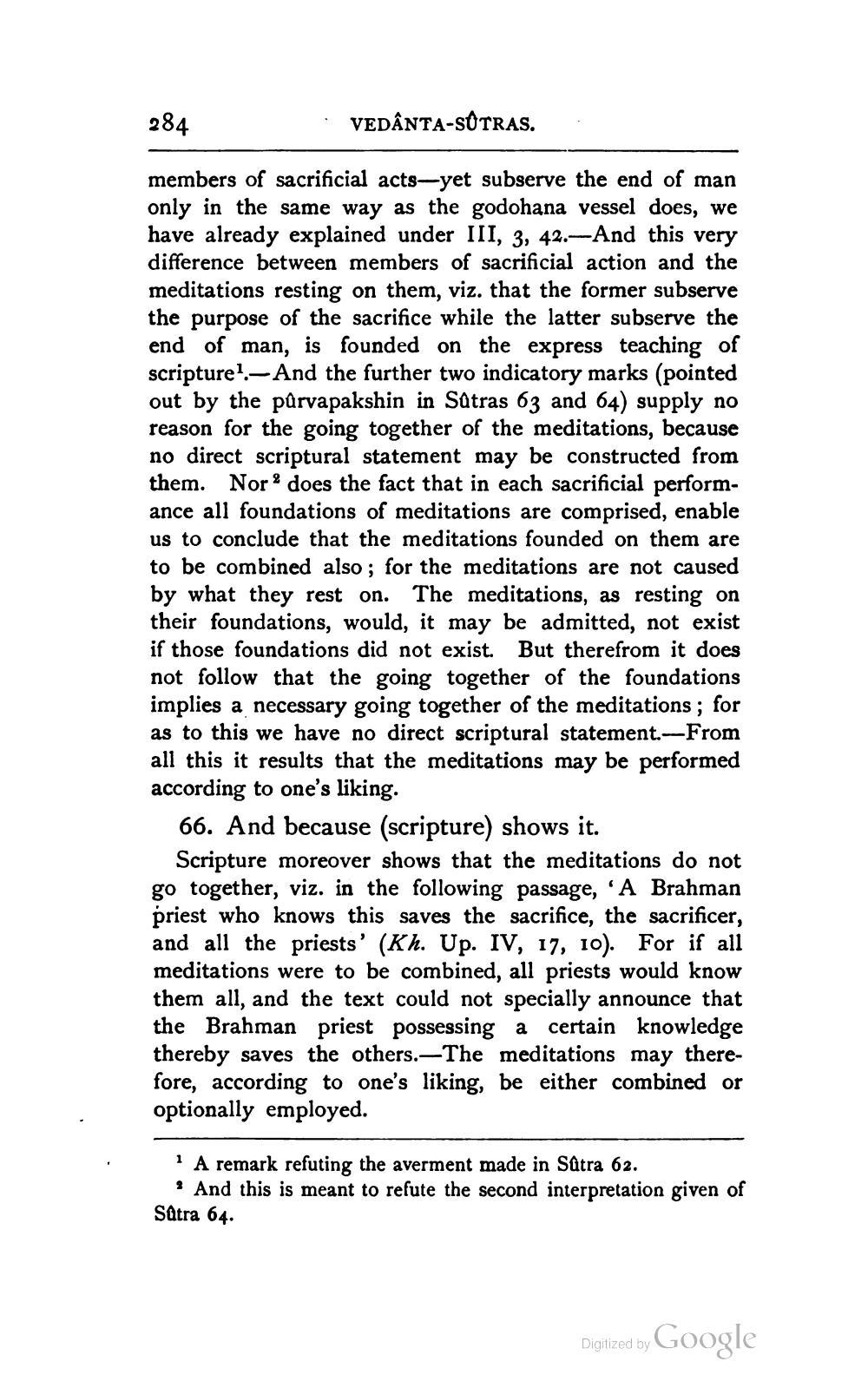________________
284
• VEDÂNTA-SOTRAS.
members of sacrificial acts-yet subserve the end of man only in the same way as the godohana vessel does, we have already explained under III, 3, 42.--And this very difference between members of sacrificial action and the meditations resting on them, viz. that the former subserve the purpose of the sacrifice while the latter subserve the end of man, is founded on the express teaching of scripturel.- And the further two indicatory marks (pointed out by the purvapakshin in Satras 63 and 64) supply no reason for the going together of the meditations, because no direct scriptural statement may be constructed from them. Noro does the fact that in each sacrificial performance all foundations of meditations are comprised, enable us to conclude that the meditations founded on them are to be combined also; for the meditations are not caused by what they rest on. The meditations, as resting on their foundations, would, it may be admitted, not exist if those foundations did not exist. But therefrom it does not follow that the going together of the foundations implies a necessary going together of the meditations; for as to this we have no direct scriptural statement.-- From all this it results that the meditations may be performed according to one's liking.
66. And because (scripture) shows it.
Scripture moreover shows that the meditations do not go together, viz. in the following passage, ‘A Brahman priest who knows this saves the sacrifice, the sacrificer, and all the priests' (Kh. Up. IV, 17, 10). For if all meditations were to be combined, all priests would know them all, and the text could not specially announce that the Brahman priest possessing a certain knowledge thereby saves the others.—The meditations may therefore, according to one's liking, be either combined or optionally employed.
? A remark refuting the averment made in Sätra 62.
. And this is meant to refute the second interpretation given of Sätra 64.
Digitized by
Digitized by Google




